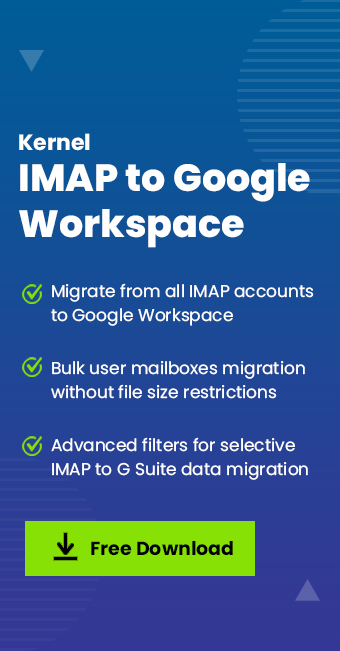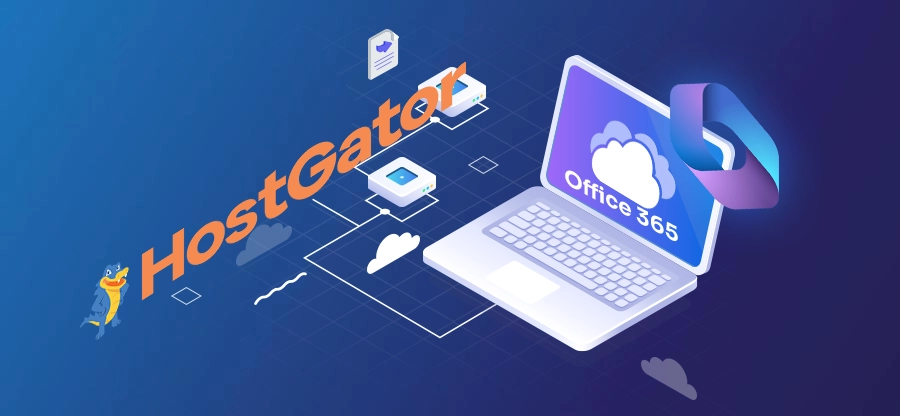Read time: 6 minutes
The majority of us own a standard Gmail account. We use this simple everyday Gmail account to sign up for Amazon, Netflix, banking services, and sometimes for handling business emails. However, the normal version of Gmail lacks several business-related features that you need to smartly manage your business accounts. You need more storage for your emails and better management tools to handle large incoming/outgoing emails. Additionally, you will need to have a more robust security framework for your confidential documents, pay slips, and financial statements that you send/ receive over your email account.
To upgrade the capabilities of your current Gmail account, you must migrate email to Google Workspace. This migration is also beneficial in case you have multiple users with Gmail accounts, and you want to group them all together in a professional environment. If it’s your first time hearing it, then migration may seem like a big word. But doing it several times from one platform to another myself, I can say it’s not that complicated if you know what to do and how to do it.
Reasons to Migrate Gmail to Google Workspace
Several benefits exist of moving from Gmail to Google Workspace:
Get your Own Domain
When you switch to Google Workspace, you can create and use a custom domain name like name@yourcompany.com instead of the traditional @gmail.com. This helps in the creation of your business branding and makes you look more credible and professional to clients.
Centralized Control
The Google Workspace gives you a central Admin Console that allows you to manage all user accounts of your organization along with their data. From the Admin Console, you can easily add or remove users, reset passwords, and implement security guidelines, which is essential for business control.
Enhanced Security
Since the Google Workspace is a paid service, it offers advanced security features not available in the free standard Gmail version. When you move Gmail emails to G Suite, you get features like more powerful spam & phishing protection, Data Loss Prevention, Google Vault for data retention & eDiscovery, etc.
Increased Storage and Reliability
You get more storage per user if you migrate Gmail to G Suite accounts. The Basic plan offers 30GB per user and increases as you upgrade the plan. Google Workspace also provides high time availability by offering a 99.9% uptime guarantee, providing reliability for critical business operations.
Better Collaboration and Support
With Google Workspace, you get a full suite of integrated tools like shared drives, Google Docs, Sheets, Slides, and more. This makes real-time collaboration and communication between teams easy. Additionally, unlike the free version, Google Workspace subscribers get access to 24/7 phone, chat, and email support for troubleshooting and assistance.
Gmail to Google Workspace Migration Prerequisites
There are certain things that you must take care of before initiating the Google Workspace migration to avoid any unnecessary halts later.
- Purchase a Google Workspace plan according to your requirements, create a custom domain, and configure your account.
- After purchasing the subscription, you must verify your domain by updating DNS records. This step makes sure that only you can access & control the emails for the domain you created.
- Create new email accounts for each person for whom you will migrate Gmail to Google Workspace mailboxes.
Manual Method to Migrate Gmail to Google Workspace
We will use Google’s Admin Console to make the transition with the following steps:
Step 1: Go to Google’s admin page and login with your Super admin G Suite account credentials.
Step 2: In the right-side panel, select Data > Data import and export > Data migration (new). Scroll down and find the Gmail card. Then, click Migrate.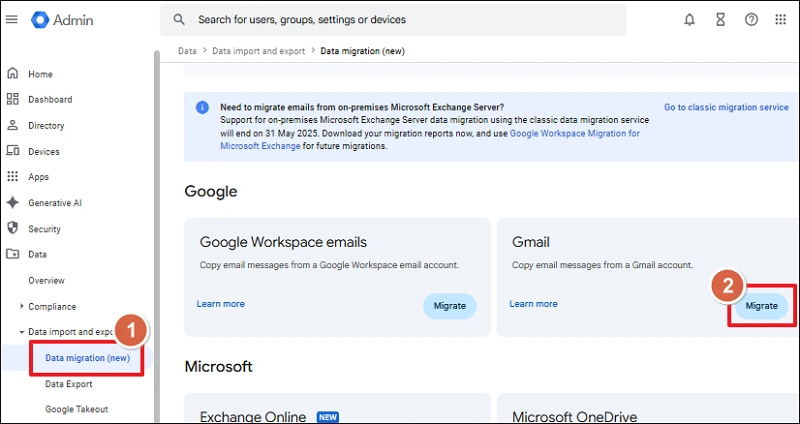
Step 3: Add the source Gmail account and click on the Request authorisation button.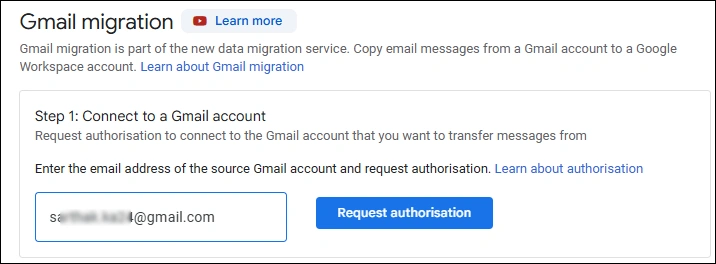
Step 4: An authorization email will be sent to the source email you provided. Go to the source Gmail account and verify the request to proceed. Then, click on the Verify request button.
Step 5: Add the target Google Workspace email address and click Save.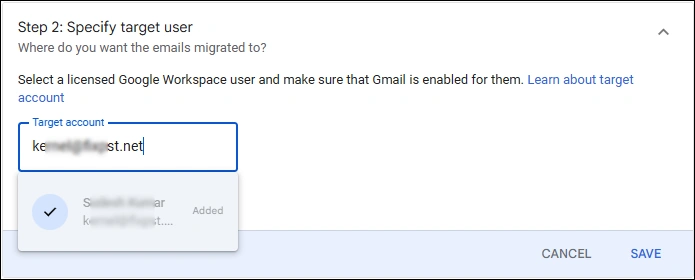
Step 6: Provide a Start date and select appropriate Message options. Input the folders you want to exclude from the migration and click SAVE.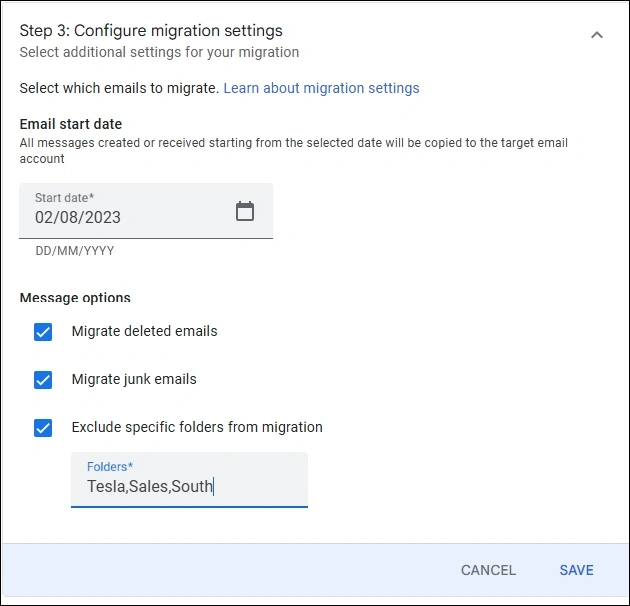
Step 7: Click Start Migration and view the live progress.
Note: For any issue, you can check out the Google’s data migration service troubleshoot guide.
Limitations of manually migrating Gmail account to G Suite
- Can only transfer data of a single user in one migration.
- You have to import Contacts and Calendars to Google Workspace separately.
- Don’t migrate Google Drive, Slides, or any other non-mail data.
- Bulk migration requires repetitive tasks and is time-consuming.
- Fewer filters and user control over the data migration.
An Automated Tool for Error-Free Gmail to Google Workspace Migration
To migrate Gmail to Google Workspace with all the components and resources with complete control and no restriction, try our IMAP to Google Workspace tool. This email migration tool uses advanced algorithms to accurately scan your Gmail account and migrate data from all your Google components, along with emails. Some of the best features of this software are:
- Easily migrates multiple user mailboxes to a Google Workspace account.
- Migrate emails, contacts, calendars, folders, and all other components.
- Easy-to-use interface, allowing anyone to perform Gmail to Google Workspace migration.
- Smart filters to help you with a custom data migration tailored to your requirements.
- Incremental migration feature to avoid data duplicity in case of multiple migration jobs.
- Support migration of any IMAP server to Google Workspace.
Conclusion
Just one data migration and you will be able to enjoy all the latest and high-tech features of Google Workspace. Follow the above method precisely to easily migrate Gmail to Google Workspace without any trouble. For bulk Gmail account migration without data loss, use the recommended IMAP migration tool. The tool makes sure to transfer every data item with complete integrity and original folder structure with metadata.


